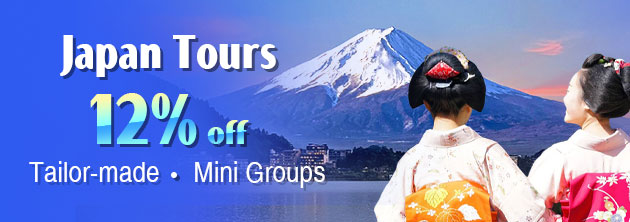- Do I Need a Visa?
- Visa-Free Travel
- How to Plan Your First Japan Trip
- How Long to Stay
- How to Spend One Week
- Cheapest Month to Visit
- Expensive Months to Visit
- Is There a Big Language Barrier
- Is It Safe to Travel in Japan
- How Much Does a Japan Trip Cost
- Payment Codes
- Money Exchange
- Currency in Japan
- 10 Things to Know Before Departure
- 15 Tips for First-Timers
- Top 6 Hiking Destinations
- WiFi & SIM Card
- Power Sockets
- Ultimate Guide for Hiking/Trekking
- Are Vaccines Needed?
- China’s Tourism VS Japan’s Tourism
- Do I Need to Tip
Is It Safe to Travel in Japan
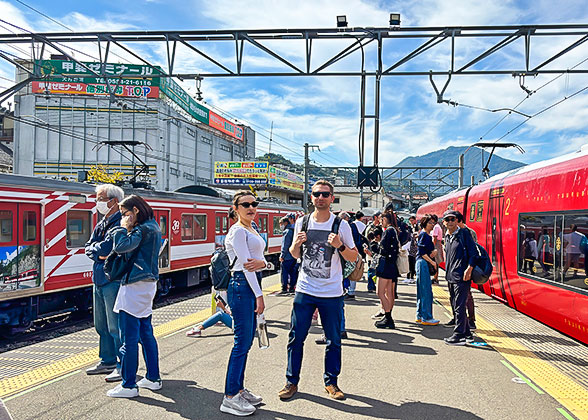
|
Ready for Earthquakes
Earthquakes may be the uppermost hazard in Japan, as you could also hear the news of earthquakes in Japan sometimes. Perhaps for Japanese, earthquakes has already been a part of their life. But for oversea tourists, the knowledge about how to cope with in an earthquake is needed. For instance, hide in a safe space under the object of strong supports. When you get a local map, you can find the nearest earthquake shelter to your hotel in case. The place should be evaded if there was an earthquake in the past days.Avoid the High Season of Natural Disasters
Natural hazards is a major threat to safe travel in Japan. Although there is nothing serious for the strong awareness of disaster prevention of Japanese, it’s best to avoid the peak season of natural disasters.Late August to early October, especially September, is the typhoon season in Japan. It’s not a good time to travel to Japan, for the weather is really terrible. In such a season, it’s necessary to watch the local weather forecast from time to time, and avoid typhoons when planning a trip to Japan.
A natural hazard would cause some secondary disasters often. For example, an earthquake or typhoon in Japan might trigger a tsunamis, and a rainstorm could bring landslides in mountain areas. Thus, the rainy season in Japan, usually in June and July, is also a time period should be avoided. In particular, it’s OK in cities, but dangerous to go into the hilly regions during the rainy season.

Prepare for Possible Natural Disasters
|
Safe Japan Transportation: Pay Attention to Opposite Traffic Rules to Your Habits
The public transportation system in Japan is very developed, and famous for its punctuality. It is relatively safe to take the public transportation in Japan, as it’s usually orderly and quiet. During the rush hours, the metro stations, urban trains, and city buses, etc. would be crowded somewhat, thus you may need to be careful. In particular, look after your kid(s) well if you travel with them.Vehicles keep driving on the right in Japan, which might be opposite to the traffic rules of some countries. If you’re from a nation having the totally different habits, you should pay special attention when walking out or driving by yourself.
High Food Security: Be Beware of Possible Allergies to Seafood Everywhere
Japan carries out the high food safety standards, so travelers can enjoy meals trustingly, in izakayas, restaurants, and hotels. In case of a small probability of accidents or health risks, reputable restaurants are the optimal choices for the best food as well as better service. Meanwhile, it is recommended to avoid eating food of unknown origin particularly when you are unwell.Japan, as a large island country, is rich in seafood. If you don’t like seafood or you may be allergic, it’s not suggested to try the local food in Japan. Also, you need to avoid the food species you are allergic to.
Is It Safe to Travel in Japan for Solo Travelers? Yes, It’s Safe.

Solo Travelers in Japan
|
Safe Travel in Japan for Solo Female Travelers
Japan is one of the safest travel destinations in the world for solo female travelers. As you may know, there are women-only carriages on urban trains in some big cities, and the women-only accommodation is also available. No one will care whether you have a companion in Japan, even if it is a woman traveling alone. You can also choose a room on the women-only floors of nice hotels, and the capsule inns for women with good public praise is often economical in the case of budget shortfall. To have an onsen bath or SPA, there are usually a women-only area.After all, solo female travelers need to be cautious on the journey. In Japan, you’d better choose the women-only carriages when taking the urban trains, in the rush hours particularly. On the mixed carriages, chikan, the onboard gropers, may haunt, much less than before. Even if these men get out, they would go after some locals rather than foreign girls. If you would meet a chikan, fell free to ask someone nearby to call the police. Moreover, night bus is not recommended even the attendant would separate men from women on the bus. At last, you can find your partner(s) if you are worry or anxious about the solo trip in Japan.
Safety Tips

In the Crowds during Local Festivals
|
Read More:
![]() An In-Depth Comparison between China’s Tourism and Japan’s Tourism
An In-Depth Comparison between China’s Tourism and Japan’s Tourism
- Japan Trip Planning
-
- 15 Tips for First-Time Travelers to Japan
- 10 Things You Should Know Before Going to Japan
- Do I Need to Tip in Japan
- How to Spend One Week in Japan
- How to Plan Your First Japan Trip
- How Much Does a Trip to Japan Cost
- What Vaccines Are Needed to Travel to Japan
- How Many Days Do I Need in Japan
- Do I Need a Visa to Go to Japan
- Visa-Free Travel to Japan
- Payment in Japan
- Is There a Big Language Barrier in Japan?
- Japan Night Tours – Top 11 Things to Do at Night
- When Is the Cheapest Month to Visit Japan?
- Peak Season – Expensive Months to Visit Japan
- The Ultimate Guide for Hiking/Trekking in Japan
- Top 6 Hiking Destinations in Japan
- Internet Connection in Japan - WiFi & SIM Card
- Power Sockets in Japan
You May Like
-
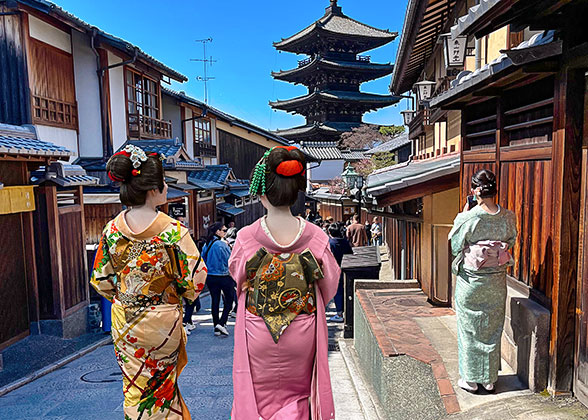 8 Days Mini Group Tour to Tokyo - Hakone & Mt. Fuji - Kyoto - Nara - Osaka - Hiroshima - Osaka from USD2771
8 Days Mini Group Tour to Tokyo - Hakone & Mt. Fuji - Kyoto - Nara - Osaka - Hiroshima - Osaka from USD2771 -
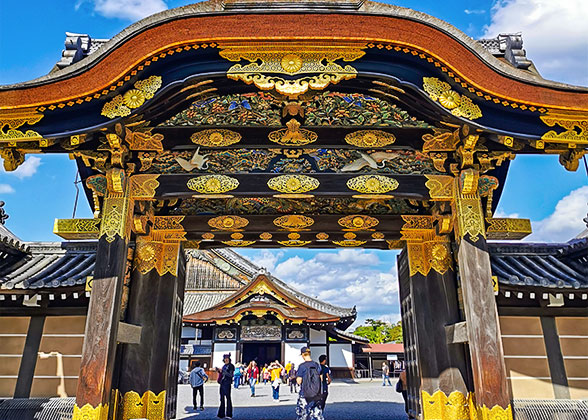 7 Days Mini Group Tour with Japan Highlights: Tokyo - Mt. Fuji - Kyoto - Nara - Osaka from USD2155
7 Days Mini Group Tour with Japan Highlights: Tokyo - Mt. Fuji - Kyoto - Nara - Osaka from USD2155 -
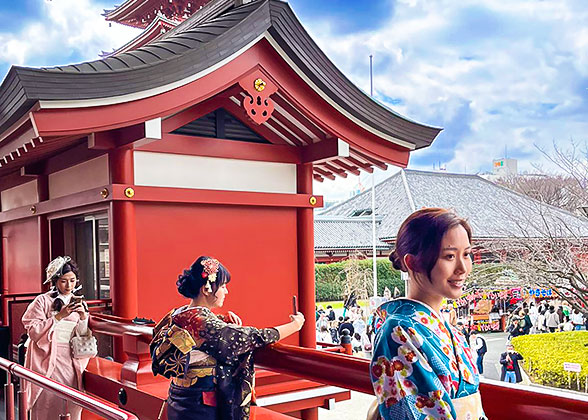 13 Days Japan Family Vacation to Tokyo - Kamakura - Tokyo - Mt. Fuji - Hakone - Kyoto - Nara - Hiroshima - Osaka from USD4443
13 Days Japan Family Vacation to Tokyo - Kamakura - Tokyo - Mt. Fuji - Hakone - Kyoto - Nara - Hiroshima - Osaka from USD4443

